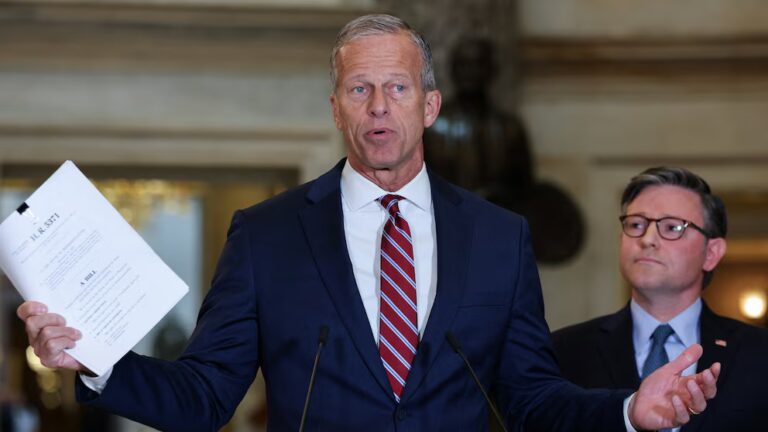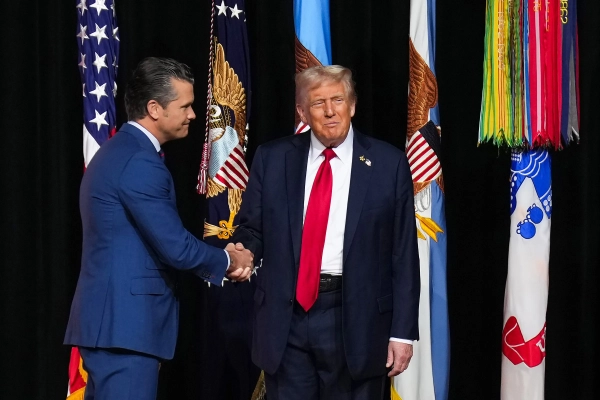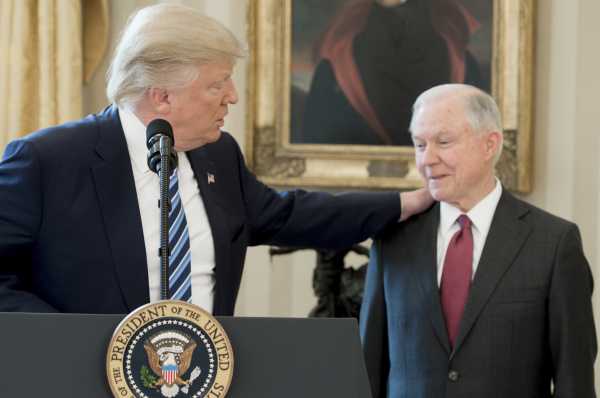
“When the full extent of your venality, moral turpitude, and political corruption becomes known, you will take your rightful place as a disgraced demagogue in the dustbin of history.”
That’s John Brennan, the former CIA director, slamming Donald Trump after his attorney general fired former FBI Director Andrew McCabe. Those are not normal comments from a former CIA director. But then, these are not normal times.
McCabe’s firing shows how Trump has corroded the operations of the American government. There are real questions about McCabe’s performance at the FBI. But there are even deeper questions about Trump’s public vendetta against McCabe, and the role Sessions played in his termination.
McCabe is not innocent of wrongdoing. He made a questionable call (at best) about allowing a leak to the press during the 2016 campaign and then he appears to have lied about it, though he says it was an honest mistake. You can imagine a normal administration, and a normal process, weighing McCabe’s actions carefully and seriously.
But none of this is why Trump wanted McCabe gone, and “carefully and seriously” is not how the process was conducted. Trump wanted McCabe gone because of McCabe’s involvement in the Justice Department investigation of Russian meddling in the campaign. Trump thinks McCabe is a Comey-aligned Democrat who was biased against him. Trump believes his political appointees should protect him. Trump has been explicit in public about all of this. And he has spent months publicly slandering McCabe and pressuring Sessions to fire him.
Trump’s campaign had already worked. McCabe announced his retirement. The Trump administration fired him on Friday not to remove him from government, but to deny him the pension earned for over 20 years of government service. It was an act of punishment, not of personnel management.
This, then, is part of the cost of Trump’s daily venality: even when his administration makes a decision that might be justifiable on its own terms, the process by which that decision was made cannot be trusted, and may indeed be a scandal in its own right.
Sen. Richard Blumenthal, a Connecticut Democrat who serves on the Judiciary Committee, called the McCabe firing “added evidence of obstruction of justice.”
Should Andrew McCabe have been fired?
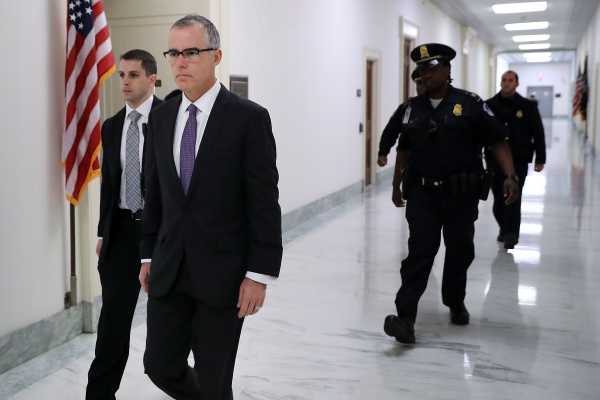

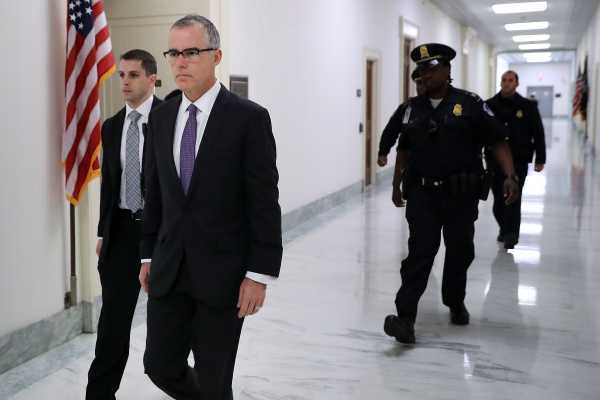
It’s worth beginning with what McCabe is said to have done wrong. As my colleagues explain:
McCabe disputes this interpretation. In his searing statement upon being fired, he wrote:
Sessions’ explanation of the firing boils down to this line: “Integrity is our brand.” The Department of Justice cannot afford even the perception of malfeasance or improper behavior.
But this is coming from an attorney general who appears to be crossing ethical lines himself in making this decision. Sessions recused himself, in no uncertain terms, from any questions related to the investigations into the Clinton campaign or Russia’s involvement in the 2016 election:
But now Sessions is firing McCabe for activities undeniably related to the Clinton investigation, and after public pressure from Trump, who is explicitly angry at McCabe for activities relating to the Russia investigation, which Sessions is also recused from.
Indeed, Trump has carried out this vendetta with McCabe for months, and done so in public, in harshly personal terms:
Nor did Trump merely pressure Sessions behind-the-scenes. The whole country was witness to his campaign:
It is difficult to believe that the full weight of the presidency was focused on firing McCabe for improperly authorizing FBI officials to speak to the Wall Street Journal or even hiding it later. Indeed, few believe that.
The force of the White House was brought down on McCabe because of McCabe’s role overseeing the Russia probe, and because of McCabe’s ties to James Comey, who Trump loathes. Indeed, Trump hasn’t even sought to hide that fact:
Sessions has his own personal and professional reasons to get rid of McCabe. Sessions angered Trump when he stepped back from the investigations, leaving Trump exposed to inquiries from Robert Mueller. Trump has publicly mocked Sessions for months in what is clearly a pressure campaign to get Sessions to resign.
Now Sessions is making a decision that not only conflicts with his promise to recuse, but is exactly what his boss want from him — an olive branch to a man who might fire him, and that comes at a time when Trump is known to be looking for administration appointees to fire. Whatever damage McCabe did to the FBI’s brand is nothing compared to the damage Sessions is doing to the Department of Justice’s brand. Who could possibly look at this episode and believe Sessions acted independent of Trump’s pressure?
McCabe acted improperly enough that it is possible to justify his termination. But Trump and Sessions have acted improperly enough that it is hard to trust the process that led to McCabe’s termination, or to believe that this is anything but what it looks like: an effort to punish and humiliate a perceived political enemy, and to send a message to others who might investigate Trump that they do so at their peril.
This is the problem with a White House occupied by a vengeful chief executive who has little respect for institutional independence, rule of law, or government transparency. Trump cannot be trusted to carry out decisions like this one fairly or impartially, and so the decisions themselves cannot be trusted. Integrity is not their brand.
Sourse: vox.com

